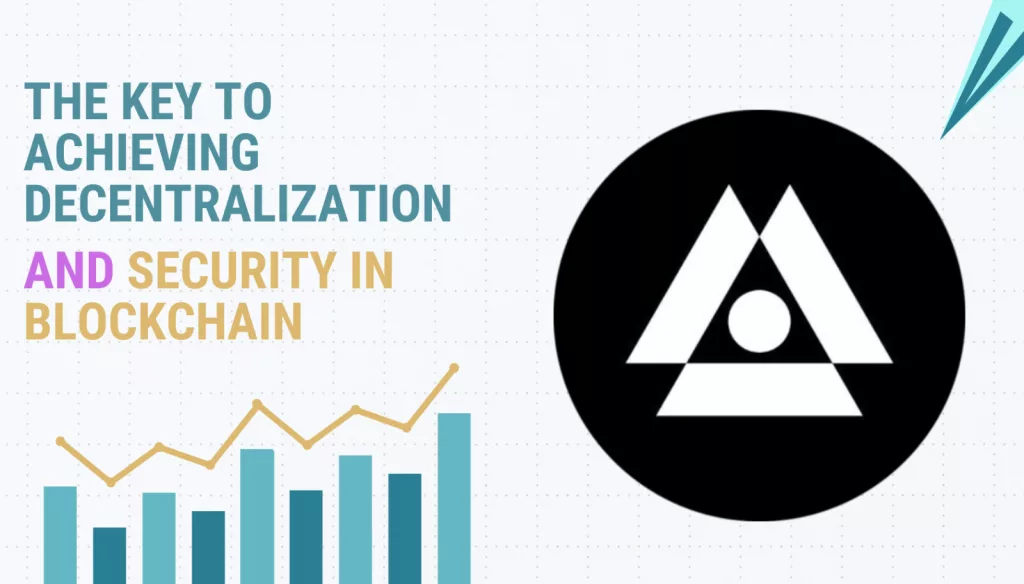Unlock the future of blockchain with Shardeum Node! Blockchain technology has the capability to transform businesses’ growth by offering a more reliable and open-source way of carrying out transactions. However, to achieve its full potential, it needs to be decentralized and secure. This is where the Shardeum node comes in. The Shardeum node is a key component in achieving decentralization and security in blockchains.

To know how to deploy Shardeum nodes and their benefits, read the complete blog post. So, let’s dive in and discover the power of the Shardeum node in achieving a decentralized and secure blockchain ecosystem.
Also, check the list of top programming languages for blockchain app development.
What is Shardeum Node?
Shardeum is based on an EVM and its main aim is to decentralize the network and secure blockchain transactions.
Many types of nodes are available in Shardeum, and each node has its own responsibility. For instance, active nodes are to validate the transactions in the networks with the help of consensus. On the other hand, archive nodes are responsible for handling the transaction history.
Also have a look at top biggest & best Blockchain Companies.
What is Decentralization in Blockchain?
Decentralization is a primary concept in blockchain technology. At its core, decentralization refers to distributing power and authority across a network of nodes rather than assigning them to a single user. This means that control over the network, its transactions, and its data is spread across multiple nodes, making it more secure and transparent.
A Shardeum node is a type of node that allows for the deployment of decentralized applications, or dApps, on the blockchain. These nodes are built to handle the processing and validation of transactions, as well as the execution of smart contracts, in a highly secure and decentralized way.
Also read what is decentralized finance (DeFi) and how does it fit into the new financial revolution?
How to Deploy Shardeum Nodes
With Shardeum node deployment, developers can create highly scalable and efficient dApps that can operate independently without any central authority or control. As you know, the data is processed through multiple nodes, so it’s impossible for any single user to manipulate or alter it without the consensus of the network. Decentralization also ensures that the data stored on the blockchain is highly secure.
Benefits of Decentralization in Blockchains
In blockchains, decentralization offers many benefits, but these are some of you should be aware of:
Trustless Environment
In the form of a distributed ledger, every user of a network has the same copy of data. You have no worries about trust in a decentralized blockchain network.
Enhance the Scalability
With Shardeum nodes, networks can handle a much larger volume of transactions without experiencing bottlenecks or slowdowns. Due to Shardeum’s parallel processing capabilities, transactions can be processed more quickly and efficiently. One of the big benefits for businesses and organizations is that they can rely on blockchain technology to validate large volumes of transactions.
Cost Effective or Low Fee
Shardeum nodes can also help to reduce the costs associated with blockchain transactions. By distributing the workload across multiple nodes, Shardeum nodes can reduce the amount of computing power required to complete transactions, which in turn reduces the cost of running blockchain networks.
Maximizes the Allocation of Resources
Decentralization can also aid in resource allocation optimization, improving the efficiency and consistency of promised services while lowering the risk of catastrophic failure.
Reduce the Degree of Weakness
Decentralizing minimizes the weaknesses of a system where too much reliance is put on certain personnel. Such weak points can lead to substantial breakdowns, like the inability to deliver promised services or ineffective service due to a shortage of resources, regular outages, backlogs, lack of sufficient incentives for quality service, or fraud.
Additionally, Ethereum blockchain technology offers many of the same features as Ethereum, such as smart contracts.
Why Decentralisation Matters in Blockchain Technology
Centralization results in the concentration of power and dependence on a single entity. For example, many companies like Meta and Amazon are curious to identify new ways to earn through user data. On the other hand, users think they provide services and we are using them, but that’s not true. Companies see that users like their products and are always trying to figure out new ways to monetize users’ data.
In conclusion, decentralization enables users to control their data completely, unlike centralization.
How to host a dApp? Decentralized Application Hosting
Decentralized applications, or dApps, are becoming increasingly popular among developers and users alike. However, hosting a dApp can be a complex process. In this article, we’ll explore the basics of dApp hosting and provide you with a step-by-step guide on how to host your own decentralized application.
- Implement the Ethereum contract
You can implement the ethereum contract by utilizing the nodes in the network. The first step is to deploy your contract and the second is all nodes are responsible to deploy the contract. Due to the Solidity programming language, Ethereum contracts are easy to keep online.
- User interface Design
HTML, CSS, and JavaScript are used to create the user interface using web3.js. A user interface cannot be executed by anyone, it is primarily controlled by computers and people using your dApp. You’re only responsible for marketing your dApp.
- Test your DApp
When it comes to creating a dApp (decentralized app), you need to test your dApp on a local testing server. Once you find out this is the perfect fit for the market, you can host it on a live server.
- Launch your DApp
To launch your own dApp then you need to invest in a professional hosting provider. Launch it.
Let’s wrap this up
Shardeum nodes play a crucial role in achieving more decentralization and security in the blockchain. Another benefit of decentralization is that it provides a secure environment where users can own data according to their needs. With decentralization, users can also host their dApps on a private blockchain network and benefit from more privacy, security, and freedom.
The blockchain infrastructure management platform can help you provide the right kind of support to host decentralized applications (dApps). To leverage Shardeum nodes effectively, it’s essential to take help from experts instead of doing it yourself.










Leave a Reply